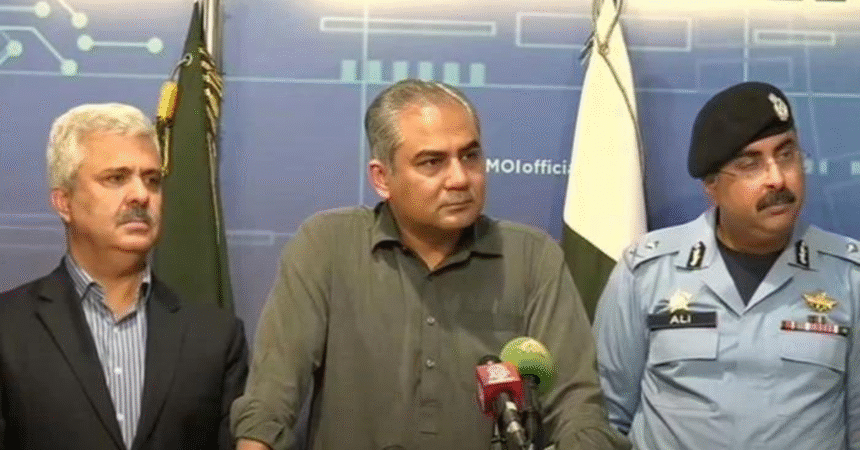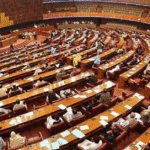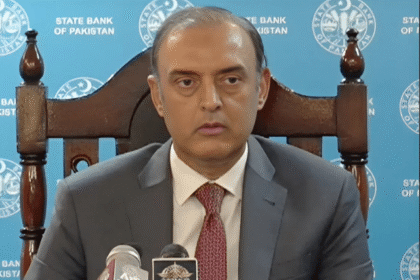As Islamabad prepares for the forthcoming Shanghai Cooperation Organization (SCO) summit, the political landscape in Pakistan is charged with tension, particularly with the Pakistan Tehreek-e-Insaf (PTI) party planning protests in the capital. Interior Minister Mohsin Naqvi has taken a firm stance, warning PTI to reconsider its protest plans given the sensitive circumstances surrounding the international event. His statements reflect not only the government’s concerns regarding public safety but also highlight the broader implications for political stability in Pakistan.
Context of the SCO Summit
The SCO summit is set to host a range of foreign dignitaries, including heads of state and high-ranking officials from member countries. This meeting is crucial for Pakistan, as it showcases the nation on an international platform, aiming to strengthen diplomatic ties and enhance regional cooperation. With such high-profile attendees, security becomes paramount. Naqvi’s warnings stem from the necessity to ensure that the summit proceeds without disruption, highlighting the intersection of politics and diplomacy in contemporary Pakistan.
Naqvi’s Warning to PTI
During a press conference, Naqvi expressed regret for the inconveniences citizens might experience due to increased security measures but underscored the importance of maintaining peace and stability. He emphasized that while every political party has the right to protest, such actions should not jeopardize national security or the daily lives of ordinary citizens.
“You cannot shut down the entire country on someone’s wish,” he stated emphatically, making it clear that the government’s priority is the safety of both citizens and foreign guests. This sentiment resonates with many who prioritize stability over political unrest, especially during significant international events.
Political Landscape and Public Response
The political landscape in Pakistan is intricate, with PTI positioning itself as the primary opposition party. While the right to protest is a democratic privilege, many citizens are wary of the potential for unrest. The specter of previous protests that escalated into violence looms large in public consciousness, prompting mixed feelings about PTI’s plans.
Social media has become a battleground for public opinion, with some citizens supporting PTI’s right to protest as a democratic necessity. Others voice concerns about the potential for chaos, especially in the context of an important international event like the SCO summit. This dichotomy reflects the broader challenges of navigating political dissent in a country where stability is often perceived as fragile.
Criticism of Khyber Pakhtunkhwa Chief Minister
Naqvi’s remarks also included a pointed critique of the Chief Minister of Khyber Pakhtunkhwa, who has shown support for the PTI protests. The Interior Minister called for responsible leadership, arguing that political figures should prioritize national interests over partisan agendas.
“Leadership should prioritize the nation’s stability over political gains,” Naqvi remarked, emphasizing that the support for protests that could potentially lead to unrest is not in the best interest of the province or the country. This critique highlights the growing divisions within Pakistan’s political framework, where leaders are increasingly challenged to balance their political ambitions with the broader implications of their actions.
Law Enforcement Preparedness
In light of the planned protests, law enforcement agencies have taken significant measures to prepare for any eventuality. Naqvi confirmed that the Islamabad police, along with other law enforcement bodies, are on high alert. They have developed comprehensive strategies aimed at ensuring that any protests remain peaceful and do not disrupt the daily lives of citizens or the security of foreign guests.
Naqvi’s assurance that police officers will not be armed during the protests—except for a Superintendent of Police (SP)—is particularly notable. This decision is intended to minimize the potential for violence and confrontation. By adopting a strategy that emphasizes de-escalation, the government hopes to foster an atmosphere conducive to peaceful demonstrations while simultaneously safeguarding public order.
The Role of Political Parties in Pakistan
Political parties in Pakistan play a critical role in shaping the socio-political landscape. The ongoing tensions between the government and the PTI illustrate the delicate balance that must be struck between political expression and the need for stability. PTI has positioned itself as a key voice of opposition, advocating for the rights of citizens and holding the government accountable. However, the party’s decision to protest during the SCO summit raises questions about the appropriateness of such actions given the broader national context.
Political analysts suggest that protests can serve as a double-edged sword for parties. While they may galvanize support and draw attention to critical issues, they can also alienate voters who prioritize stability and security. Naqvi’s warnings resonate with segments of the public who fear that unrest could detract from the significant diplomatic engagement taking place in Islamabad.
The Impact of Social Media on Political Discourse
In today’s digital age, social media platforms have become vital channels for political discourse. Public sentiment regarding the PTI protests has been fervently debated online, with users expressing a range of opinions. Some argue that the right to protest is a fundamental aspect of democracy that must be protected, while others caution against potential violence and unrest.
The debate highlights a broader societal concern about the effectiveness of protests in achieving political objectives. Many citizens question whether disruptive demonstrations truly serve the interests of the public or merely exacerbate existing tensions. As both the government and opposition navigate this charged atmosphere, social media will likely continue to play a crucial role in shaping public perceptions and influencing political outcomes.
Public Safety and the Right to Protest
The crux of the debate surrounding the planned protests centers on the balance between public safety and the right to protest. Citizens have a fundamental right to express their grievances, yet this must be weighed against the potential for unrest that could jeopardize the safety of others. Naqvi’s emphasis on maintaining order during the SCO summit speaks to a broader recognition that certain moments in national politics require a more tempered approach to dissent.
As protests loom on the horizon, the response from both government and opposition will be closely monitored. If protests proceed without incident, it could strengthen PTI’s position as a viable opposition party. Conversely, if violence erupts, it could damage the party’s credibility and alienate potential supporters.
Legal Framework Surrounding Protests
Pakistan’s legal framework surrounding protests and assemblies is complex. While citizens have the constitutional right to gather and express their views, authorities often impose restrictions based on considerations of public safety and security. The interpretation of what constitutes a “threat” to public order can vary widely, leading to tensions between law enforcement and protestors.
In recent years, there have been increasing calls for legal reforms to protect the right to protest while ensuring public safety. Many advocates argue that clearer guidelines are needed to delineate acceptable forms of protest and the parameters within which they can occur. This ongoing discourse reflects a larger struggle within Pakistan to balance democratic freedoms with the imperatives of security.
Implications for Future Political Engagement
As the situation develops, the implications for future political engagement in Pakistan are significant. The actions of both the government and the PTI during this period will likely set a precedent for how political dissent is managed in the future. If the government successfully maintains order during the protests, it may embolden them to take a firmer stance against dissent in other contexts.
Conversely, if the protests escalate into violence, it could shift public sentiment against the government, prompting calls for accountability and reform. Political parties will need to navigate this landscape carefully, considering the long-term ramifications of their actions on public trust and political legitimacy.
Regional and International Perspectives
The dynamics of the PTI protests also take on added significance when viewed from a regional and international perspective. The SCO summit represents not only a diplomatic opportunity for Pakistan but also a chance to solidify its position within the broader geopolitical landscape. A successful summit could enhance Pakistan’s credibility among its regional partners, while any disruption caused by domestic unrest could undermine its standing.
International observers will be closely monitoring the situation in Pakistan, particularly as it relates to the country’s stability and governance. How the government manages the protests may influence foreign perceptions of Pakistan’s political landscape, potentially affecting investment and diplomatic relations.
The Path Forward
As Pakistan grapples with the challenges posed by the upcoming SCO summit and the planned PTI protests, the path forward remains uncertain. The intersection of politics, public sentiment, and international diplomacy will be critical in shaping the nation’s trajectory. Both the government and opposition parties will need to weigh their decisions carefully, considering the implications for public safety, political legitimacy, and national interests.
The coming days will likely test the resilience of Pakistan’s political institutions, as they navigate the complexities of dissent in a charged atmosphere. The balance between maintaining order and allowing for political expression will be a defining challenge as the nation approaches this pivotal moment.
The warning issued by Mohsin Naqvi serves as a crucial reminder of the delicate balance that must be struck in a democratic society. As political tensions rise in anticipation of the SCO summit, the actions of both the government and the PTI will resonate far beyond the capital. With public safety and international relations at stake, the outcomes of this situation will have lasting implications for the future of political engagement in Pakistan.
As the nation braces for potential protests, the importance of dialogue and compromise becomes ever more apparent. The ability to navigate dissent in a manner that upholds democratic values while ensuring public safety will be a testament to Pakistan’s political maturity in the years to come.
#PakistanPolitics #SCOsummit #MohsinNaqvi #PTIProtests #PublicSafety #PoliticalLeadership







